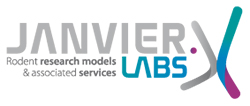Rat Strains Differ in Antibody Response to Streptobacillus moniliformis
DOI:
https://doi.org/10.23675/sjlas.v37i4.224Abstract
Rats are the natural host of Streptobacillus moniliformis. The bacterium is zoonotic which is an obvious reason for periodic monitoring of rat colonies for S. moniliformis infection. This may be done by measuring antibodies to the bacterium by for instance the enzyme-linked immunosorbent assay (ELISA). Inbred rat strains can significantly differ in antibody response to viral, bacterial and parasitic infections. We tested the hypothesis that in rats the antibody response to S. moniliformis is under genetic control. Rats of 6 inbred strains were intranasally and orally dosed with the bacterium and monitored for the development of antibodies by ELISA.
Rats of all strains rapidly seroconverted to the bacterium. The rat strains differed significantly in final antibody activities and seroconversion rates. WKY and SHR rats were high responders, BN and F344 rats were low responders and LEW and BD rats were intermediate both in antibody development and seroconversion.







